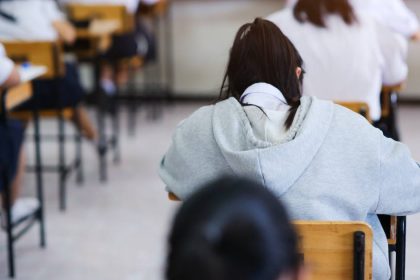A mandatory mobile phone ban is coming to high schools in South Australia, marking the end of the state’s six-month awareness campaign to limit technology in the classroom.
The policy requires that students’ mobile phones be ‘off and away’ from the first bell to the last, in all public high schools from the start of term three.
More than one-quarter of South Australian secondary institutions have already implemented the ban on mobile phones in schools, with the remainder of the state’s 158 high schools required to transition by the start of the new term next week.
The state government says the ban is there to minimise anti-social behaviour, bullying and help both teachers and students focus on learning during school hours.
According to State Premier Blair Boyer, the ban will support teaching young people how to use technology in a safe, ethical and responsible way.
“This new policy has already seen a major shift in our schools and brings students’ focus back to their learning by eliminating a significant distraction in our classrooms, however, for this ban to work, it needs the support of the whole community,” he said.
An issue for the whole community
A statewide awareness campaign about the danger of mobile phones has been running in preparation for the ban since the school year commenced in SA.
Targeted towards parents, grandparents, caregivers and other family members, the campaign has encouraged families to talk with their children about why the government is taking this action.
South Australian Secondary Principals’ Association Chief Executive, Jayne Heath, says banning mobile phones goes beyond the schooling system, with families, community members and sporting clubs also playing a role.
“It needs to be a multi-pronged approach,” she said.
“It’s important that the wider community understand the importance of the policy so schools can be supported in implementing it, so this campaign is a positive step forward.”
The results look promising for students
With the promise of limiting classroom distractions and prompting real-world engagement for students, educators remain confident in the ban’s ability to improve student success.
Salisbury East High School Deputy Principal Sue Shepherd says that even in these early stages, the outcomes of this policy rollout have been very encouraging.
“Teachers already noticing changes in behaviour, particularly at break times,” she said. “Students are more engaged with each other, with teachers and with activities – there’s a really nice vibe in the yard.
“We will continue to build on the policy by considering storage options, such as Yondr pouches, but overall, we are pleased with the outcomes to date.”
Since the ban’s limited implementation in term one, the state government says schools have already seen a reduction in the inappropriate use of mobile phones by students and an improvement in the overall learning environment.
There are some exceptions to the rule
The enforcing of this ban will fall on the shoulders of school principals, with some exceptions granted to students on a case-by-case basis.
According to the state government guidelines, mobile phones can still be used when helping students overcome learning disabilities, translating languages and monitoring health conditions.
Individual schools can also permit students to use personal devices in certain learning circumstances.
If needed, parents and guardians will still be able to communicate with children via the school’s formal communication channels.
Is this a step towards a nationwide ban?
This impending ban follows in the footsteps of similar policies put in place by other Australian states in recent years, marking a national attitude shift towards the use of technology in education.
In Victoria, mobile phones have been banned in primary and secondary schools since term one of 2020, while Western Australia and Tasmania have similar “off and away all day” policies.
Queensland has also been running similar trials, with a blanket ban on mobile phones and smartwatches announced for state schools at the start of the 2024 school year.
Until this year, 95 per cent of state schools across Queensland were operating under a “clear policy” banning the use of phones during class times, but the change will prohibit their use altogether.
In April, federal Education Minister Jason Clare called for a national approach, saying he would meet with state and territory counterparts in the middle of 2023 to discuss and encourage this.
“I think the time has come for a national approach to the banning or the restriction on the use of mobile phones by students in schools,” he said.
Countries with a similar national approach include China, France and Sweden, while other countries, like the United Kingdom and the United States, encourage schools to create their own policies.







